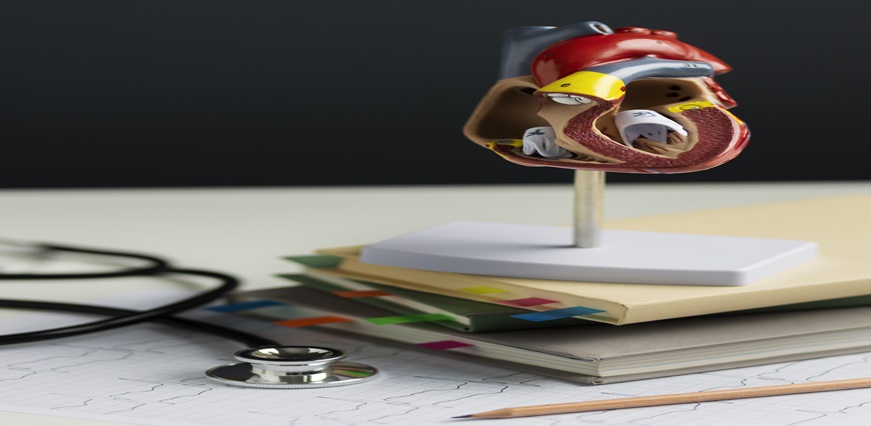





No lab centers are available in this city

Max Lab
Feb 07, 2024
People with diabetes are at a higher risk of developing heart disease because of plaque buildup in the arteries. As cholesterol deposits keep accumulating over time, the arteries keep on narrowing. This impedes proper blood flow to the heart, which can lead to the weakening of the heart muscles, significantly increasing the risk of heart attacks or strokes. To reduce one’s risk of such cardiovascular complications, to lower cholesterol levels, statins are often prescribed to diabetic patients. A popular medication, statin can be used to effectively reduce the amount of cholesterol produced by the liver. The benefits of a statin treatment also include a reduction of low-density lipoprotein (LDL), or bad cholesterol, levels and an increase in high-density lipoprotein, or good cholesterol, levels.
Doctors generally prescribe statins for high cholesterol treatment. Statins are a class of prescribed drugs that help lower high cholesterol levels in the bloodstream by reducing the amount of cholesterol that is produced by the liver and released into the bloodstream. To do this, statins actually block an enzyme, which is called HMG-CoA reductase which is responsible for the liver’s cholesterol production. When the statin pill is swallowed it gets absorbed into the blood from the digestive tract and reaches the liver. In liver cells, the molecules of statin bind themselves with the HMG-CoA reductase enzymes, preventing them from producing cholesterol. As the liver starts releasing lower amounts of cholesterol into the bloodstream, the body starts using the excess amounts of cholesterol in the blood and in the fatty deposits causing plaque in the arteries.
To lower cholesterol, this medicine effectively helps reduce the fat deposits created by cholesterol, which improves the blood flow throughout the body, helping reduce the chances of strokes or heart attacks. In fact, according to some studies, statins can also help reduce arterial wall inflammations, which also adds to the many benefits of statins.
One of the top benefits of statins is of course lowering one’s risks of developing serious cardiovascular issues like a stroke or heart attack. However, it doesn’t end there as statins are very useful for the management of some other conditions as well, like high blood pressure, kidney disease, and diabetes. Apart from cholesterol treatment, statin also helps protect the body against inflammation, which is a common condition under several types of chronic diseases.
Another important benefit of taking statins for high cholesterol is the cost-effectiveness, especially if compared with other forms of treatment that are suggested for managing high cholesterol. Whether it is the lifestyle or dietary changes or opting for surgery, statins are definitely the more affordable option. The beneficial effects of statins are many for people with high cholesterol, but it should also be noted that this medication may not be the most suitable option for everyone. It is important to consult one’s doctor to discuss their health profile and individual requirements before starting any medication.
Using this medicine to lower cholesterol levels comes with several benefits. However, statins may not be the best option for everyone. It is crucial to consult one’s doctor to understand their suitability, but some of the factors that might indicate suitability for statins include:
Despite the many beneficial effects of statins, it is not for everyone. For example, people who experienced allergic reactions or any other negative side effects of statins, should definitely avoid the medicine completely. Others who may not be best suited for a statin-based treatment plan include:
People with liver disease as statins may cause further damage to the liver, leading to the development of some serious complications.
Women who are pregnant or breastfeeding should avoid statins.
Several other types of medication that people may be on, like antipsychotic drugs, can react negatively with statins, increasing the risk of some serious side effects. That is why it is important to discuss the same with one’s doctor.
People with very slightly elevated cholesterol levels should not take statins but should consider some small lifestyle changes instead, which may even suffice for managing their cholesterol.
There is no one-size-fits-all solution for effective management of high cholesterol, including treating it with statins. Whereas the medicine may prove to be highly effective and beneficial for many people, it may also lead to some serious side effects or complications for many others. That is why it is important to have a candid discussion about one’s health, their needs, and the medication or supplements that they are on before starting with any medicine regimen.












Sign up takes less than 60 secs and gives you access to your offers, orders and lab tests.
Looks like you are not registered with us. Please Sign up to proceed
OTP will be sent to this number by SMS
We have successfully received your details. One of the agents will call you back soon.
 To reach our help desk call 9213188888
To reach our help desk call 9213188888
No Lab Centers are available in this city
Looks like you are not registered with us. Please Sign up to proceed
OTP will be sent to this number by SMS
Not Registered Yet? Signup now.Looks like you are not registered with us. Please Sign up to proceed





 7982100200
7982100200.png)
Comments